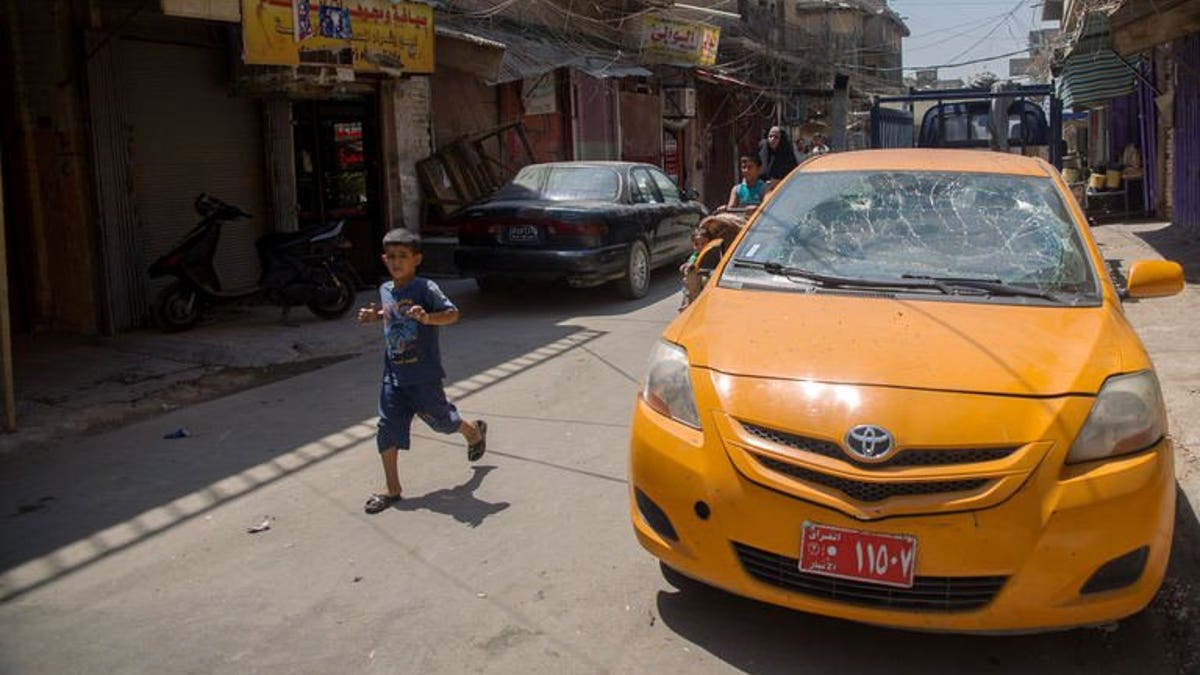
A boy runs past a taxi which was damaged by a bombing in the Allawi neighbourhood of central Baghdad on August 15, 2013. Attacks on Monday killed six people in Iraq, as gunmen defied massive government operations to stem some of the worst violence to have hit the country in five years. (AFP/File)
MOSUL, Iraq (AFP) – Attacks on Monday killed six people in Iraq, as gunmen defied massive government operations to stem some of the worst violence to have hit the country in five years.
Security forces have mounted some of the biggest operations targeting militants since the 2011 withdrawal of American troops, but analysts and diplomats say Iraq is not tackling the root causes of the unrest.
Prime Minister Nuri al-Maliki has nevertheless vowed to press on with the campaign in a bid to combat the country's worst bloodshed since 2008, with more than 3,500 people killed since the start of this year and the interior ministry describing Iraq as a "battleground."
Monday's attacks were concentrated in Mosul, a predominantly Sunni Arab city in northern Iraq that has long been one of the country's most violent areas.
Three workers in a carpentry shop were shot dead by militants, while two policemen were gunned down in a pre-dawn attack on a checkpoint, officials said.
Gunmen also killed a man from the small Kurdish sect known as Shabak outside his house in Mosul.
The 30,000-strong Shabak community is present in 35 villages in Nineveh province near the border with Turkey, with many members wanting to join the autonomous Kurdish region of northern Iraq.
The Shabak people speak a distinct language and largely follow a faith that is a blend of Shiite Islam and local beliefs.
The community was persecuted under ousted Iraqi dictator Saddam Hussein, and after the 2003 US-led invasion of Iraq they were targeted numerous times by Al-Qaeda.
Also in Mosul, security forces said on Monday that they arrested 15 people on terrorism-related charges, and found a cache of weapons and bombs to the east of the city.
South of Mosul, security forces also claimed to have found four spy drones equipped with cameras ostensibly used to observe military and other sensitive sites. They did not give details on the capabilities of the drones, or whether they had been in use.
Violence has markedly increased in 2013.
Analysts and diplomats link the upsurge of attack to anger among Sunni Arabs over their alleged ill-treatment at the hands of the Shiite-led authorities, which they say has given Sunni militant groups more room to recruit and carry out attacks.








































